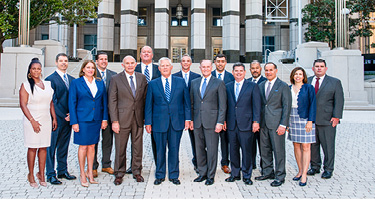As a young lawyer, I once sat in a “pre-trial” conference in a judge’s chambers before a jury trial started. The clients were seated at their tables, as was the courtroom clerk. The bailiff was standing at attention by the door. The jurors were in the jury room. All was ready to start. The judge looked at the attorneys from the bench and said, “Counsel, I’d like to speak with you in my chambers.”
Once in the judge’s office, the judge explained that he could not include a certain requested jury instruction because, after conducting his own research, he determined that it was insufficiently pled in the complaint. The judge stated that the complaint would have to be amended in order for him to allow the issue to be included. Plaintiff’s counsel and defense counsel were not friends, but both had more than forty years of trials under their belt. Plaintiff’s counsel said, “Well, Sam, what do you think?” Defense counsel replied, “I won’t object if you want to amend.”
The motion was promptly granted by the judge in chambers. I was a young lawyer, but I had been practicing long enough to recognize that these three learned lawyers were of a different time and that the same outcome among three from my generation was not likely. Some of you readers may say this was inappropriate; some may say this was the most efficient way of handling the issue. However you fall on the debate, none can argue the fact that these lawyers acted in a way that is seldom seen in today’s courtrooms.
These lawyers could have handled this much differently. Defense counsel could have asked to be heard on the record in open court. He could have embarrassed Plaintiff’s counsel in front of his client by castigating him for failing to plead his claim properly. But to what end? To impress his client? To score a notch on his belt? Would it have truly served his client’s interest? How might it impact his next client when he has to appear in front of this same judge?
The next time you find yourself thinking, “The practice ain’t what it used to be,” try asking yourself, “What am I doing about it?” Are you doing your best to avoid gamesmanship and pointless skirmishes in your cases? Are you mentoring a young lawyer? Did you take on a summer law clerk? If we want to keep the ideals of professionalism and goodwill in the practice of law, we must be examples to each other and the next generation.























